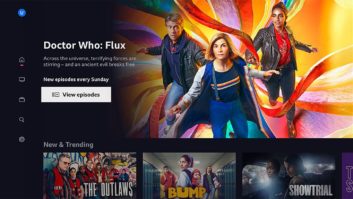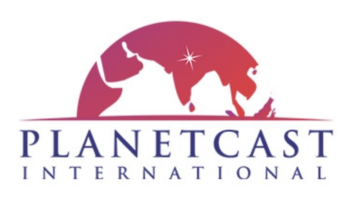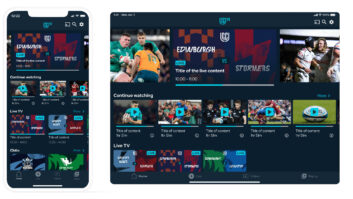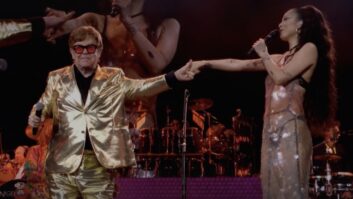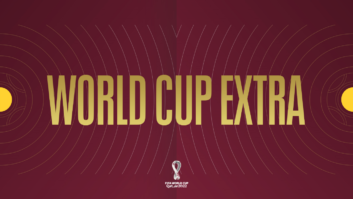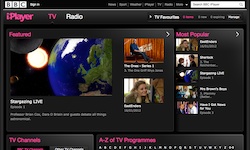
Growth in connected TV, mobiles and tablets has fuelled record viewing figures for BBC iPlayer, which saw 1.94 billion TV and radio programme requests across all platforms in 2011, writes Adrian Pennington.
Although computers are still the most popular platform for users, accounting for two-thirds of requests, the month of December saw a huge spike in usage through mobiles, tablets and connected TVs.
In December alone, 7 million programmes were requested on connected TV sets, a year-on-year increase of over 1,000%, while mobile phones and tablets recorded 13 million and 10 million requests – year-on-year increases of +163% and +596% respectively. This reflects both the growing penetration of internet-connected devices in the market, and the near-universal availability of BBC iPlayer on those devices.
This helped BBC iPlayer register a record-breaking 187 million monthly requests across all platforms in December alone, a +29% increase year-on-year. Top Gear’s Indian Special was the most popular programme – watched 1.7 million times over the whole month of December.
Daniel Danker, General Manager, Programmes and on Demand, said: “While 2011 was a remarkable year for BBC iPlayer across the board, the real story was growth of iPlayer on TVs, mobile phones, and tablets, outpacing PC growth many times over. Having established itself as a must-have app for smartphone users and the gold-standard for TV on the go, we see huge potential for BBC iPlayer on the living room set in 2012 – the natural home for great TV – as audiences switch on to the benefits of connected TV.”
Most noise at the recent CES event was centred on the increasingly smart capabilities of the TV set, which has transformed from a dumb terminal to an intelligent home hub delivering a massive variety of customised content.
Getting video to viewers is the next focus in terms of search/discovery and navigation for consumers as well as optimising that process to enable video publishers and advertisers to reach the connected TV audience. The BBC, for example, already has news apps for Sony, Samsung and Panasonic connected TVs.
Ooyala optimised
In what will no doubt be the first of many such moves, the video analytics and publishing service Ooyala is being optimised for connected TV – in the first instance for Panasonic’s Viera Connect platform.
Ooyala’s universal syndication platform enables connected TV providers to scale distribution of new direct-to-consumer content offerings. The first publisher to use the service (in the US) is The Country Network (TCN) which will begin giving Viera Connect customers access to its VoD catalogue, and a simulcast of the network’s live TV broadcast channel.
“This will be a huge year for hyper-selective, cross-device entertainment,” declared Chris Wong, senior VP of corporate and business development for Ooyala. “The industry clearly recognizes the urgency of connected cloud services in the living room as viewers become more discriminating about what they watch and where they can access video.”
Warren Hansen, founder and CEO of TCN, said: “The partnership between Ooyala and Panasonic is the first real step into the world of connected television. Broadcasters, like TCN, need to look beyond linear distribution for more monetisation opportunities.”
The change to the prevailing TV landscape being wrought by over the top delivery is however predicted to be slow rather than dramatic. Internet-distributed video content will suffer from immature technology and lack of content rights, and over the next couple of years, there are few reasons for most consumers to cut the cord to their pay-TV operator service and go completely OTT.
“The impact on pay TV will be miniscule in 2012 with no major changes to the value chain,” says Michael Lantz, CEO of Accedo (pictured), a specialist provider of TV apps.
“Instead, over the next couple of years, I believe that the winning OTT services will be complementing services,” he said.
“We saw 5-10% of operators doing something with companion devices in 2011 but in 2012 it will become commonplace with more than 50% of them offering a companion application.”
www.accedo.tv
www.bbc.co.uk/iplayer
www.ooyala.com
www.tcncountry.com
